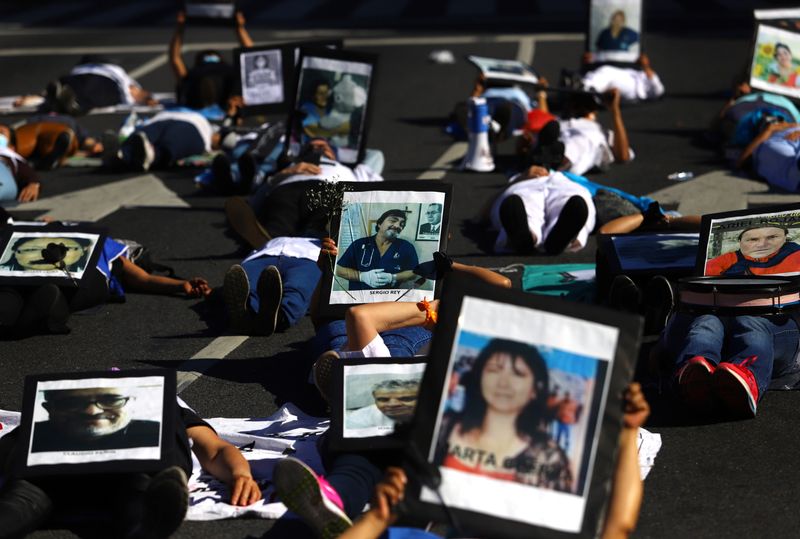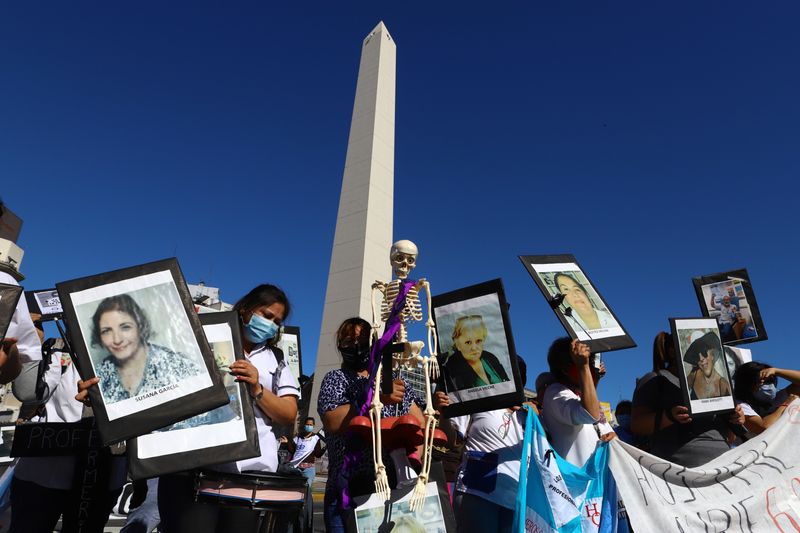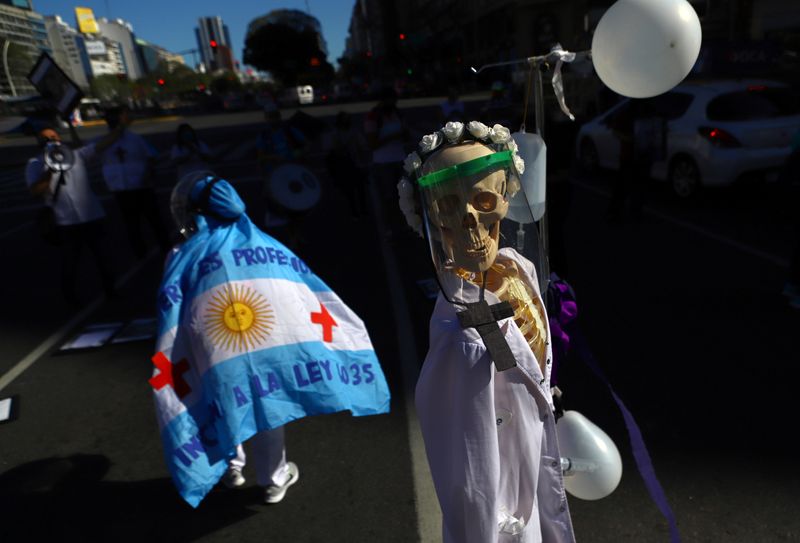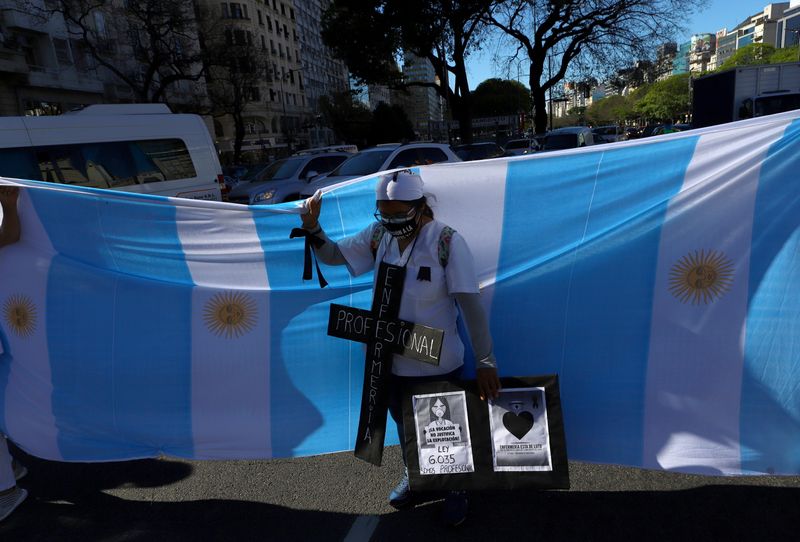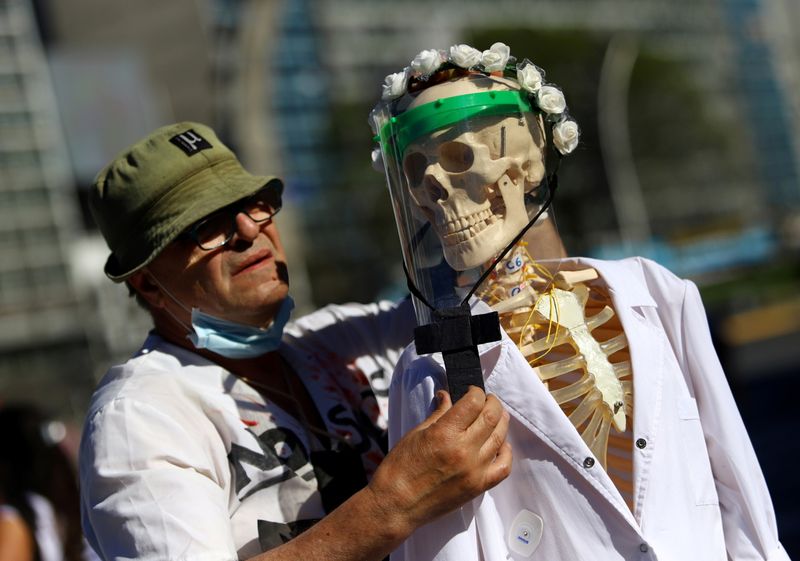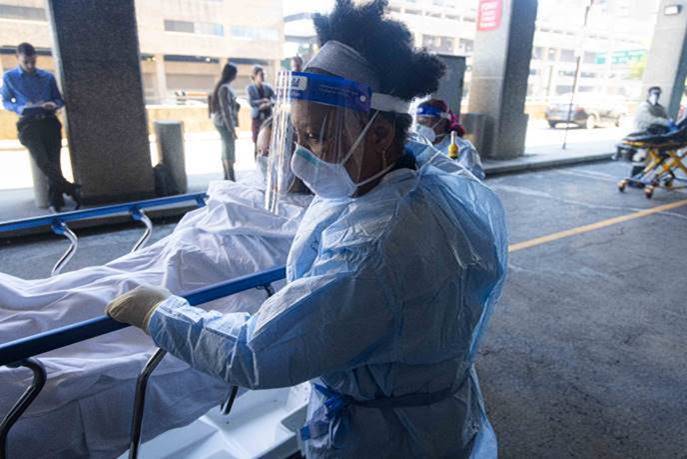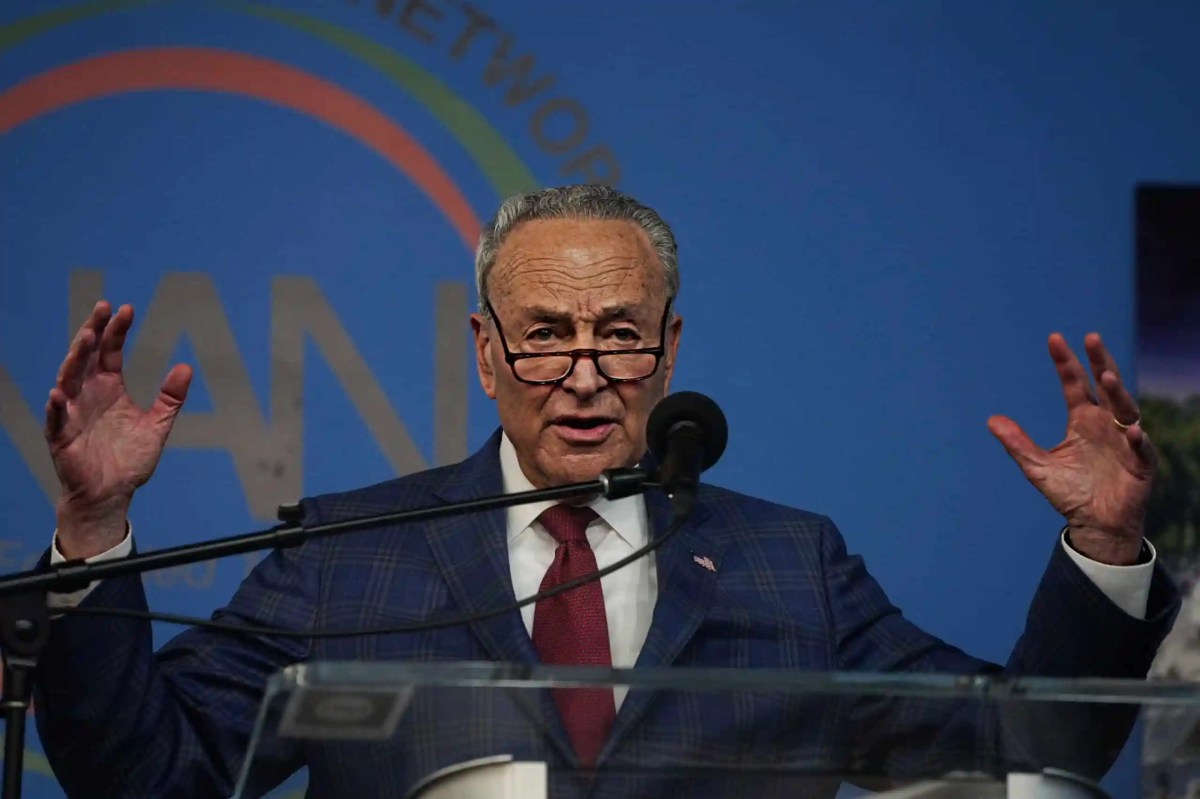BUENOS AIRES (Reuters) – Argentina’s President Alberto Fernandez said on Tuesday the “horizon” was starting to come into sight as the country battles against the coronavirus pandemic, with some signs the peak in cases may be over after rising since the outbreak began.
The South American country imposed a strict lockdown in March, which initially slowed the spread of COVID-19 infections, but as restrictions were eased cases climbed rapidly above 1 million with one of highest testing positive rates in the world.
However, a rolling seven-day average of new cases has dipped significantly since hitting a high on Oct. 21, raising hopes the peak may finally be over for the country, which has 1.18 million confirmed cases and 31,623 deaths.
“We’ve been very concerned to see where the horizon was. The horizon is now starting to come into sight and that is why we have to be optimistic, and that is why we have to be calmer than ever,” Fernandez told reporters.
“We have never been this close to ending the disease.”
(For graphic on Argentina: past the peak? : https://graphics.reuters.com/HEALTH-CORONAVIRUS/ARGENTINA/azgpojkdavd/chart.png)
Argentina’s government said on Monday the country was expecting to receive at least 10 million doses of Russia’s main experimental COVID-19 vaccine, known as Sputnik V, between December and January.
Citing criticism from some fronts against using a Russian-made vaccine, Fernandez said the “cold war was over” and pointed to the country’s technological successes.
“We do not ask anyone what ideology the vaccine has, what we ask is if it saves the lives of Argentines, and if it saves the lives of Argentines go and buy it and inject it,” he said.
“The truth is that I don’t care who is producing it.”
(Reporting by Reuters TV; Writing by Adam Jourdan; Editing by Tom Brown)

